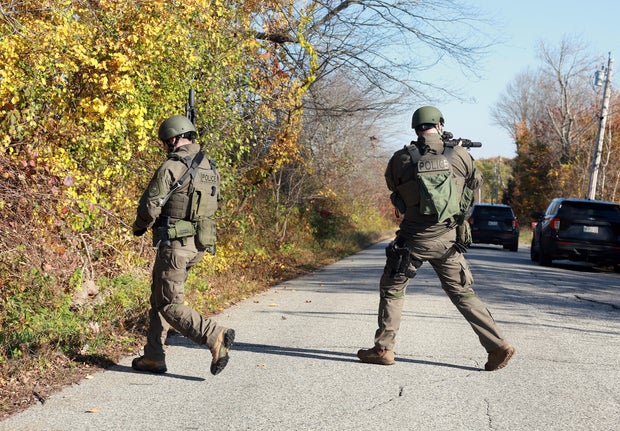An Army Reserve investigation found there were “multiple communication failures” about warning signs in the months before Army reservist Robert Card committed the worst mass shooting in Maine’s history, in Lewiston, last October.
The investigation into the shooting and into Card’s suicide said the failures were with Card’s chain of command and with the military and civilian hospitals which treated him for mental health concerns a few months before the shooting. Despite Card exhibiting “homicidal ideations” and speaking of a “hit list,” he was discharged from the hospital with a “very low risk” of harm to himself or others in August 2023.
The Army Reserve has administratively punished three officers in Card’s chain of command for “dereliction of duty.”
Lieutenant General Jody Daniels, chief of Army Reserve, told reporters the officers failed to follow procedures, including initiating an investigation after Card was hospitalized in July 2023, that would have flagged him as potentially needing more care.
Joe Raedle / Getty Images
For about two weeks a year, from 2014 to 2022, Card served as a combat weapons trainer at the United States Military Academy at West Point, New York, primarily as a “pit NCO” instructor on the hand grenade range, according to the investigation.
Starting in January 2023, Card began to hear voices of people that he believed were ridiculing him behind his back, on social media, and directly in his presence, according to the investigation. His friends and family spent months trying to assure him they supported him. By May 2023, his family reported at least four mental health incidents to a school resource officer who referred it to local law enforcement.
The Sagadahoc County Sheriff’s Office reported it to his chain of command in the Reserve. Nevertheless, his unit said he should come to the mandatory annual training in July.
He was at training in New York and in active-duty status when he showed signs of a “deteriorating mental state.” His command ordered an evaluation at the nearby military hospital, which then determined Card needed a higher level of care at Four Winds, a civilian hospital.
He stayed at the civilian hospital for 19 days with the diagnosis of a “brief psychotic disorder.” When he was released, neither the civilian nor the military hospital communicated the discharge or follow-on care to Card’s chain of command.
If a soldier is in the hospital for over 24 hours, the command is supposed to initiate a line of duty investigation. If they had initiated it, they would have been in communication with both Four Winds and the military hospital about Card’s condition before and after he was released.
Card was not in a duty status when he killed 18 people at a bowling alley and a nearby restaurant on Oct. 25, and hadn’t been since he was released from the hospital on Aug. 3, 2023.
In September, a friend in Card’s unit reported his concern that Card would conduct a mass shooting. Since they didn’t have authority over Card, his reserve leadership called in local law enforcement for wellness checks. Local law enforcement attempted to conduct two wellness checks on Card but failed to engage with him.
